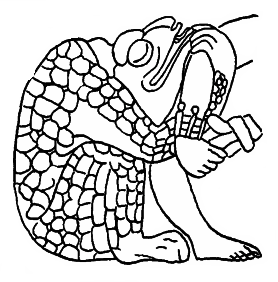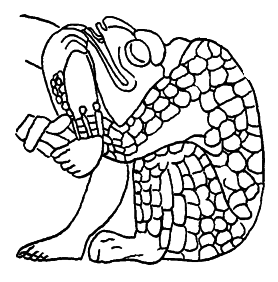 Mr. Von Siebold and Count Diesbach
Mr. Von Siebold and Count Diesbach
 Mr. Von Siebold and Count Diesbach
Mr. Von Siebold and Count Diesbach
in Isabella L. Bird's "Unbeaten Tracks in Japan," 1911.
"Yesterday I dined at the Consulate, to meet Count Diesbach, of the French Legation, Mr. Von Siebold, of the Austrian Legation, and Lieutenant Kreitner, of the Austrian army, who start to-morrow on an exploring expedition in the interior, intending to cross the sources of the rivers which fall into the sea on the southern coast and measure the heights of some of the mountains. They are “well found” in food and claret, but take such a number of pack-ponies with them that I predict that they will fail, and that I, who have reduced my luggage to 45 lbs., will succeed!" , p.215.
"A short time ago Mr. Von Siebold and Count Diesbach galloped up on their return from Biratori, the Aino village to which I am going; and Count D., throwing himself from his horse, rushed up to me with the exclamation, Les puces! les puces! They have brought down with them the chief, Benri, a superb but dissipated-looking savage. Mr. Von Siebold called on me this evening, and I envied him his fresh, clean clothing as much as he envied me my stretcher and mosquito-net. They have suffered terribly from fleas, mosquitoes, and p. 233general discomfort, and are much exhausted; but Mr. Von S. thinks that, in spite of all, a visit to the mountain Ainos is worth a long journey. As I expected, they have completely failed in their explorations, and have been deserted by Lieutenant Kreitner. I asked Mr. Von S. to speak to Ito in Japanese about the importance of being kind and courteous to the Ainos whose hospitality I shall receive; and Ito is very indignant at this. “Treat Ainos politely!” he says; “they’re just dogs, not men;” and since he has regaled me with all the scandal concerning them which he has been able to rake together in the village." p.233
"After the storm of Sunday, Monday was a grey, still, tender day, and the ranges of wooded hills were bathed in the richest indigo colouring. A canter of seventeen miles among the damask roses on a very rough horse only took me to Yubets, whose indescribable loneliness fascinated me into spending a night there again, and encountering a wild clatter of wind and rain; and another canter of seven miles the next morning took me to Tomakomai, where I rejoined my kuruma, and after a long delay, three trotting Ainos took me to Shiraôi, where the “clear shining after rain,” and the mountains against a lemon-coloured sky, were extremely beautiful; but the Pacific was as unrestful as a guilty thing, and its crash and clamour and the severe cold fatigued me so much that I did not pursue my journey the next day, and had the pleasure of a flying visit from Mr. Von Siebold and Count Diesbach, who bestowed a chicken upon me." p.289
Charles Theodore Gonzalve de DIESBACH de Belleroche, 1847-1899
/ P II / FR / DIP / *
03/08/1847 in Lille - † 28/06/1899 in Paris, "The Diesbach family were
a patrician family, originally from the Swiss canton of Bern. The
stirps had several branches and Charles came from the French branch. He
took a military career and participated in the Franco-German War 1870 -
1871 as a captain. On January 1, 1873 he was transferred to the reserve
and he went into the diplomatic service. On June 27, 1873 he became a
Military Attaché in St. Petersburg and was shifted to Vienna on April
1, 1875. On August 23, 1877 he was appointed Secretary of the Legation of Tokyo, where he worked until the end of 1882. On February 17, 1883 he took up his last post in the Embassy of Bucharest.
For all undergraduate students!!!, you do not copy & paste but [re]think my message. Remind Wittgenstein's phrase, "I should not like my writing to spare other people the trouble of thinking. But, if possible, to stimulate someone to thoughts of his own," - Ludwig Wittgenstein
リンク
文献
その他の情報